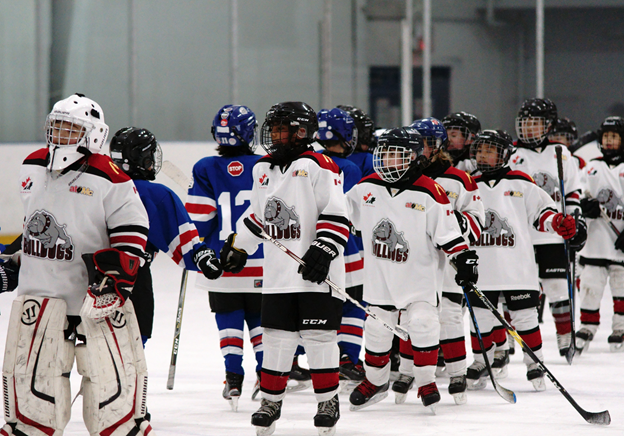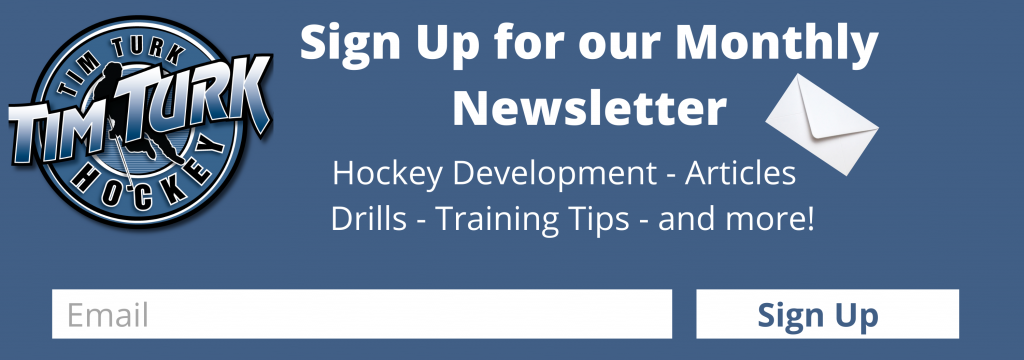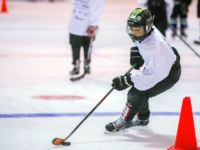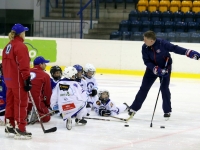We all know how unique a sport hockey is. While the history of the game is rich with tradition and lore, we also know that hockey has its fair share of unwritten rules. These rules begin early on in a player’s career and many of them are ingrained in us from as early as minor hockey. Why are these so important? No matter where you play in the world, these same unwritten and unspoken rules apply. Even though they are unspoken, these rules hold just as much significance as any official ones do. Before you ever step on the ice, let’s be aware of the following unspoken rules in hockey!
Protect The Goalie!
It doesn’t matter if it is in the NHL or in peewee, players are taught at a young age to always protect their goalie. Don’t overlook the fact that the goalies have the most padding, they are often immobile, and besides, if your goalie gets hurt it is a serious blow to the team. In youth hockey and in recreational leagues, there usually aren’t too many players lining up to play the position.
So how do you protect the goalie in hockey? In a game, you don’t want to let anyone in the crease or take extra whacks at your goalie’s pads. Obviously, this isn’t as much of an issue when it comes to youth and minor hockey, but it does instill in these young players to protect their goalie from an early age. But what about at practice? One way to make sure you can keep your goalie safe is to keep the shots low and away from their head and neck. Goals in practice don’t count so be selective when shooting with power!
Respect Your Opponents
This really applies to all sports but it is especially important in an aggressive game like hockey where tempers can flare and emotions can get out of control. There is a culture of body checking and fighting in hockey that can trickle down to youth and recreational leagues as well. When you are on the ice you can be competitive, but do not ever lose respect for your opponent.
How can you show sportsmanship to the other team? If your team is winning by a wide margin there is no need to continue to celebrate when you score goals. We have all been on the losing end of some blowouts and we know how miserable of a feeling it can be. Losing is never fun so always consider the other team when you know the game is already out of hand!
Don’t Skate on the Ice Until the Zamboni is Finished!
For anyone who has played hockey at any level, this one should make you smile. Remember how eager we were as kids waiting for the ice to dry after the Zamboni cleaned the ice between games? It is an unwritten rule for every practice or game to let the new surface on the ice dry so that you get the cleanest and most pristine sheet of ice possible.
As a kid, it feels like an eternity before we’re allowed to jump on the ice. But when we finally get to take those first strides, there is no better feeling in the world than a fresh sheet of ice!
Tapping Your Stick When an Opponent is Injured
This goes hand in hand with respecting your opponent while on the ice. Nobody likes to see another player getting injured, especially if they are on your own team. Unfortunately, given the speed that the game is played and the unpredictable nature of the ice, injuries are a part of life for hockey players. Whether it is a youth league, a recreational league, or the NHL, accidents happen and it is always important to be respectful when one does.
Traditionally, players have tapped their stick when another player is injured but then is able to skate off the ice. It shows the comradery of players no matter which team they play for. This is as true in the NHL as it is in any local youth league. Kids learn from a young age to always be respectful and support other players on opposing teams. Tapping your stick is the universal sign of respect in hockey. Alternatively, players who are on the bench can tap the side of the boards with their sticks in support.
Never Disrespect the Officials or the Opposing Coaches
Again, the theme of respect is so important in hockey and in any sport for that matter. When you are on or off the ice, you should always respect both the officials and any coaches involved in the game. This should go without saying but as we already mentioned, sometimes emotions can get the better of us on the ice.
The officials should always feel safe and in control of the game when they are out on the ice. Even if you do not agree with their calls, there is no use arguing with them. In fact, it often works against you in the future because they remember who gave them a hard time previously. Likewise, with coaches, players should never be addressing the opposing coach and vice versa. You can be as competitive as you want against players on the ice, but the unspoken rule in hockey has always been to leave coaches and officials out of it.






